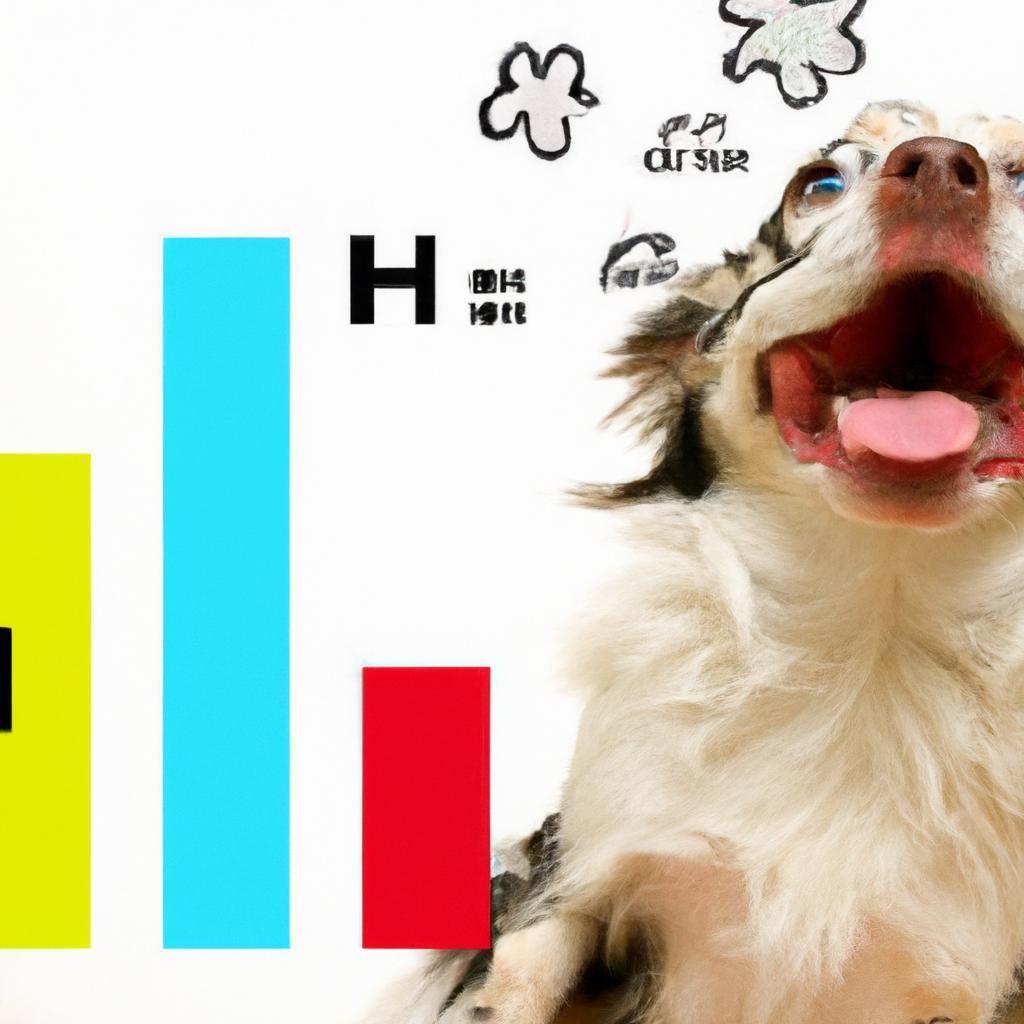In a bustling dog park, two canines caught everyone’s attention: Max, a clever Border Collie, and Bella, an astute Poodle. As their owners debated which dog had the higher IQ, a challenge arose. Max swiftly herded a flock of ducks, showcasing his instinctive intelligence, while Bella solved a complex puzzle to retrieve a hidden treat, demonstrating her problem-solving skills. The crowd gasped, realizing that intelligence in dogs isn’t just about tricks—it’s about adaptability and learning. So, which dog has the higher IQ? Perhaps it’s not just one, but the unique brilliance of each breed that captivates us.
Contents
- Understanding Canine Intelligence: Key Factors That Influence Dog IQ
- Top Breeds with Exceptional Intelligence: A Comprehensive Overview
- Training Techniques to Enhance Your Dogs Cognitive Abilities
- Choosing the Right Breed for Your Lifestyle: A Smart Decision for Pet Owners
- Q&A
Understanding Canine Intelligence: Key Factors That Influence Dog IQ
When it comes to assessing a dog’s intelligence, several key factors come into play that can significantly influence what we often refer to as “dog IQ.” One of the most critical elements is genetics. Certain breeds have been selectively bred for specific tasks, such as herding, hunting, or guarding, which inherently requires a higher level of problem-solving ability and adaptability. For instance, breeds like the Border Collie and Poodle are renowned for their quick learning and ability to perform complex tasks, showcasing the impact of genetic predisposition on canine intelligence.
Another important factor is training and socialization. A dog’s environment and the experiences it undergoes during its formative years can greatly enhance its cognitive abilities. Dogs that are exposed to various stimuli, challenges, and social interactions tend to develop better problem-solving skills and emotional intelligence. Consistent training not only reinforces good behavior but also encourages mental engagement, allowing dogs to thrive intellectually. Engaging in activities such as obedience training, agility courses, or interactive games can significantly boost a dog’s IQ.
Age also plays a pivotal role in determining a dog’s intelligence. Puppies are naturally curious and eager to learn, making them highly receptive to training and new experiences. However, as dogs age, their cognitive functions may decline, similar to humans. Regular mental exercises and challenges can help maintain a senior dog’s cognitive health, ensuring they remain sharp and engaged. Understanding the age-related changes in a dog’s brain can help owners tailor their training methods to suit their pet’s developmental stage.
individual personality cannot be overlooked when evaluating canine intelligence. Just like humans, dogs have unique temperaments that can influence their learning styles and problem-solving abilities. Some dogs may be more independent and stubborn, while others are eager to please and highly motivated. Recognizing and adapting to a dog’s personality can lead to more effective training methods, ultimately enhancing their overall intelligence. By fostering a supportive and stimulating environment, dog owners can unlock their pet’s full potential and nurture their innate intelligence.
Top Breeds with Exceptional Intelligence: A Comprehensive Overview
When it comes to canine intelligence, certain breeds consistently stand out due to their remarkable ability to learn, adapt, and perform tasks. These dogs not only excel in obedience training but also demonstrate problem-solving skills and emotional understanding. Among the most intelligent breeds, you will find:
- Border Collie: Renowned for their herding instincts, Border Collies are often regarded as the smartest dog breed. Their capacity to learn commands and perform complex tasks is unparalleled.
- Poodle: Available in standard, miniature, and toy sizes, Poodles are not only elegant but also highly intelligent. They are quick learners and excel in various dog sports and activities.
- German Shepherd: Known for their loyalty and versatility, German Shepherds are frequently employed in police and military roles. Their intelligence allows them to be trained for a variety of tasks, making them exceptional working dogs.
- Golden Retriever: With their friendly demeanor and eagerness to please, Golden Retrievers are not only popular family pets but also highly trainable. Their intelligence shines through in obedience and service roles.
Other breeds also exhibit remarkable cognitive abilities, showcasing a range of skills that make them stand out in various environments. For instance, the Doberman Pinscher is known for its loyalty and protective instincts, making it an excellent guard dog. Similarly, the Shetland Sheepdog is celebrated for its agility and intelligence, often excelling in competitive obedience and agility trials. Additionally, the Rottweiler, with its strong work ethic and trainability, is frequently utilized in search and rescue operations.
It’s essential to recognize that intelligence in dogs can manifest in different ways. While some breeds may excel in obedience and learning commands, others may demonstrate their intelligence through problem-solving and adaptability. For example, the Australian Shepherd is known for its herding capabilities and ability to make quick decisions in dynamic situations. Meanwhile, the Belgian Malinois is often favored in police work due to its keen instincts and ability to learn complex tasks rapidly.
Ultimately, the intelligence of a dog breed can significantly influence its suitability for various roles, from family companions to working dogs. Understanding the unique traits and capabilities of these breeds can help potential dog owners make informed decisions. Whether you seek a loyal companion or a highly trainable working partner, the intelligence of these breeds will undoubtedly play a crucial role in your choice.
Training Techniques to Enhance Your Dogs Cognitive Abilities
Enhancing your dog’s cognitive abilities is not just about teaching them tricks; it’s about engaging their minds in a way that promotes problem-solving and critical thinking. One effective technique is **positive reinforcement training**. This method encourages desired behaviors by rewarding your dog with treats, praise, or playtime. By consistently rewarding your dog for completing tasks, you not only strengthen your bond but also stimulate their mental faculties. Over time, your dog will learn to associate specific actions with positive outcomes, making them more eager to engage in learning.
Another powerful approach is **interactive play**. Games that require your dog to think, such as hide-and-seek or puzzle toys, can significantly boost their cognitive skills. These activities challenge your dog to use their senses and problem-solving abilities, keeping their minds sharp. Consider incorporating **fetch with a twist**—instead of simply retrieving a ball, hide it and encourage your dog to find it. This variation not only makes the game more exciting but also enhances their ability to think critically and strategize.
Socialization is also a key component in developing your dog’s intelligence. Exposing your dog to different environments, people, and other animals can improve their adaptability and decision-making skills. Arrange playdates with other dogs or take them to dog parks where they can interact with various breeds. This exposure helps your dog learn to navigate social cues and enhances their ability to assess situations, ultimately contributing to a more well-rounded and intelligent canine.
Lastly, consider incorporating **obedience training** into your routine. Teaching your dog basic commands like sit, stay, and come not only establishes a foundation for good behavior but also exercises their mental muscles. As your dog masters these commands, gradually increase the complexity by introducing new tricks or commands. This progressive approach keeps your dog engaged and encourages them to think critically about their actions. Remember, a mentally stimulated dog is a happy dog, and investing time in their cognitive development will yield a more intelligent and responsive companion.
Choosing the Right Breed for Your Lifestyle: A Smart Decision for Pet Owners
When considering a new canine companion, it’s essential to align your choice with your lifestyle and preferences. Different breeds exhibit varying levels of intelligence, which can significantly impact their trainability, behavior, and overall compatibility with your daily routine. For instance, breeds like the **Border Collie** and **Poodle** are renowned for their high IQ, making them excellent choices for active individuals or families who enjoy engaging in training exercises and mental challenges.
On the other hand, if your lifestyle is more laid-back or you have limited time for training, you might want to consider breeds that are known for their adaptability and lower maintenance needs. Breeds such as the **Basset Hound** or **Shih Tzu** may not rank as high on the intelligence scale, but they can still offer companionship and joy without the demands of rigorous training. Understanding the balance between intelligence and temperament is crucial in making a choice that fits seamlessly into your life.
Moreover, it’s important to recognize that a dog’s intelligence is not solely measured by their ability to learn commands or tricks. Emotional intelligence, problem-solving skills, and social behavior also play significant roles in how a breed interacts with its environment and family. For example, **Golden Retrievers** are not only intelligent but also highly social, making them great family pets that thrive on companionship and interaction.
Ultimately, the decision should reflect not just the breed’s IQ but also how well they can integrate into your lifestyle. Consider factors such as your activity level, living situation, and the time you can dedicate to training and socialization. By choosing a breed that aligns with your lifestyle, you ensure a harmonious relationship that benefits both you and your new furry friend, leading to a fulfilling and joyful companionship.
Q&A
-
Which dog breeds are considered the smartest?
According to canine intelligence rankings, breeds such as the Border Collie, Poodle, and German Shepherd consistently top the list. These breeds excel in obedience, problem-solving, and adaptability, making them ideal companions for various tasks.
-
How is a dog’s IQ measured?
A dog’s IQ is typically assessed through its ability to learn commands, solve problems, and adapt to new situations. Tests often include measuring the time taken to learn a new command or the number of repetitions needed to master a task.
-
Does a higher IQ mean a better pet?
Not necessarily. While intelligent breeds may be easier to train and more responsive, the best pet for you depends on your lifestyle and preferences. Consider factors like temperament, energy level, and compatibility with your family.
-
Can training improve a dog’s intelligence?
Absolutely! Regular training and mental stimulation can enhance a dog’s cognitive abilities. Engaging activities such as puzzle toys, agility training, and obedience classes can help develop your dog’s intelligence, regardless of its breed.
while intelligence in dogs can vary widely, breeds like the Border Collie and Poodle consistently demonstrate remarkable problem-solving skills and trainability. Choosing a dog with a higher IQ can enhance your companionship and training experience, making it a rewarding decision for any dog lover.

大家好,我是彼得潘,專業的手法身體治療師。我喜歡探索和研究各種主題,並透過與人工智慧的合作分享專業、實用、有趣的文章。我們定期進行人工審核,以確保內容的準確性。如果您發現文章中有任何不準確的地方,請隨時與我們聯繫,我們會及時糾正。您可以透過 [email protected] 與我們聯繫。



